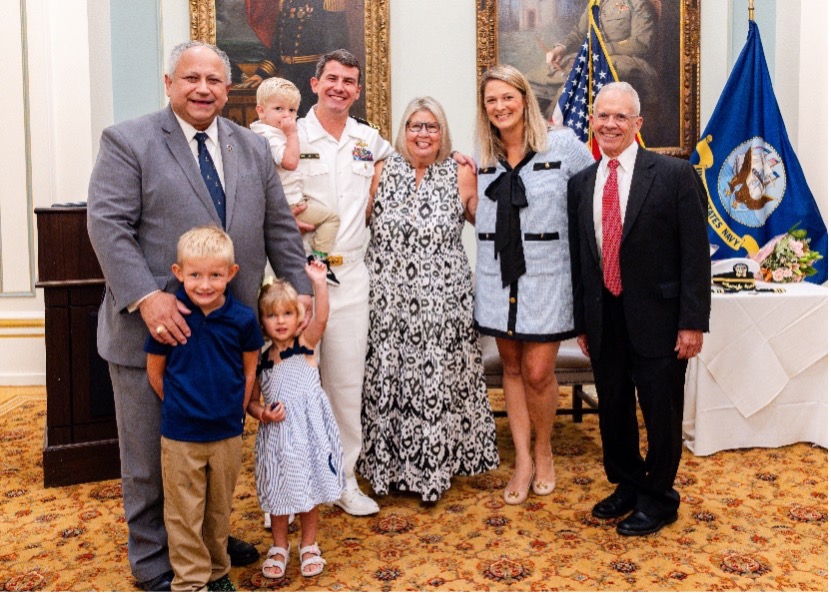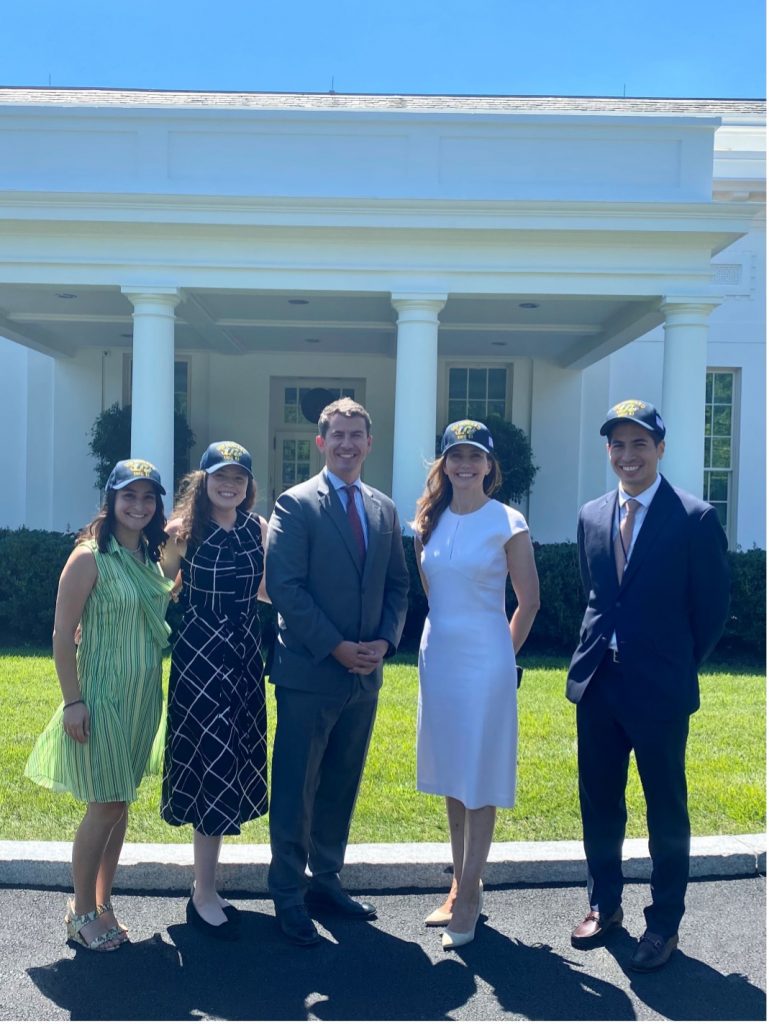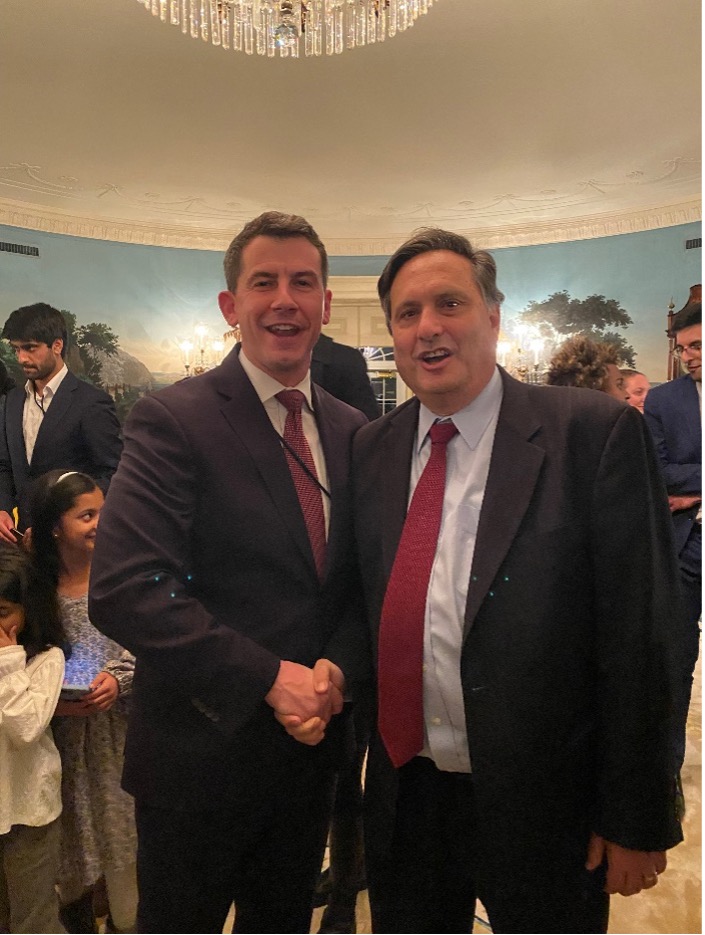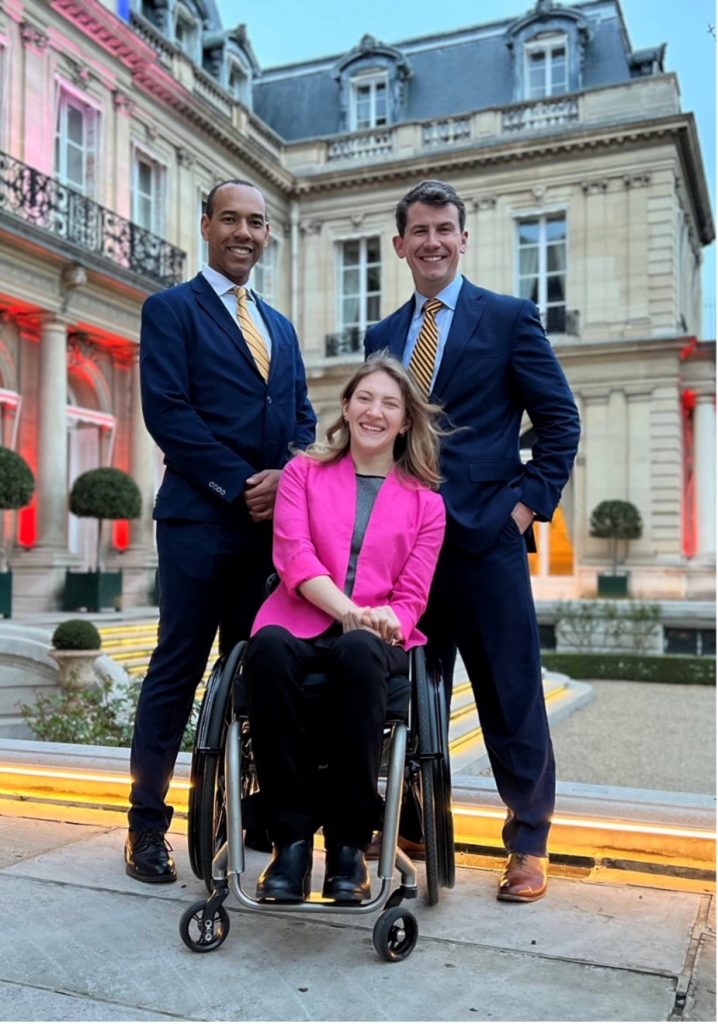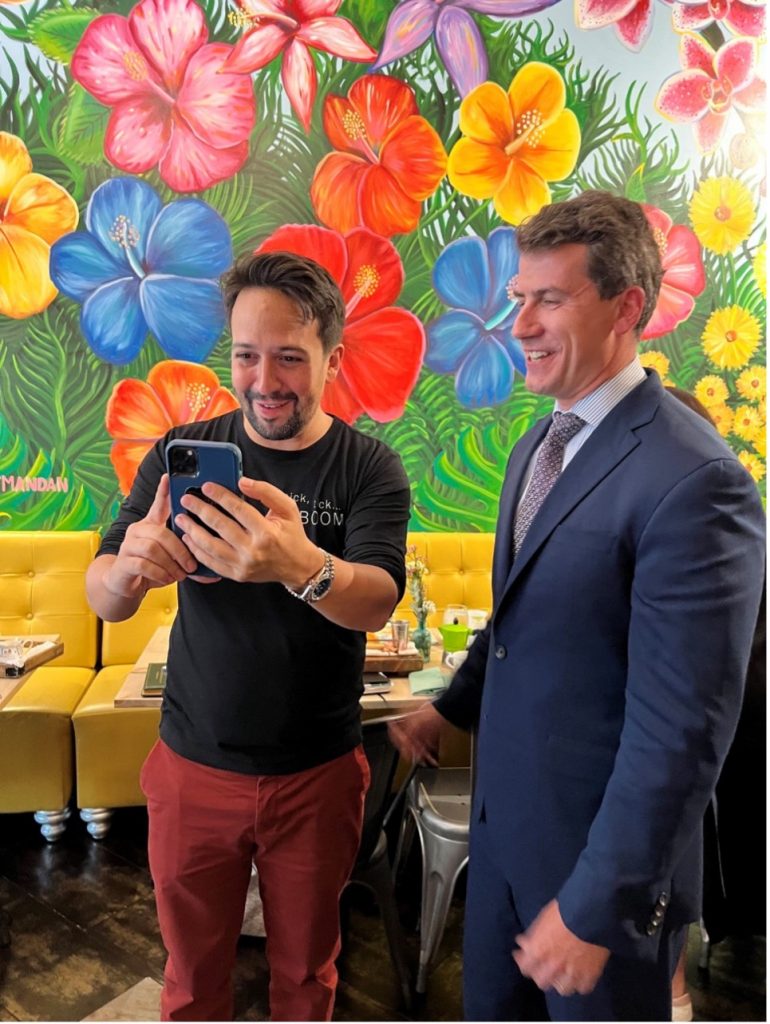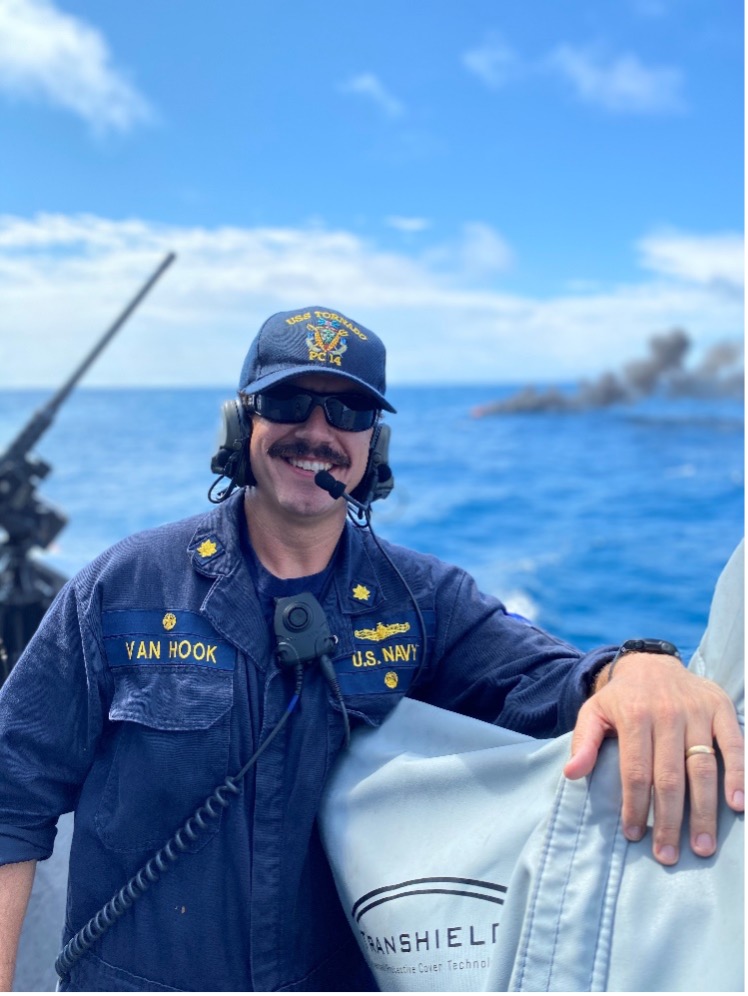WHF Profile: Graham Van Hook (2022-23)
Can you tell us about yourself and your work before the White House Fellowship?
I was working at the Pentagon and Capitol Hill as a Navy Congressional Laison to the House and Senate Appropriations Committees (HAC-D & SAC-D). It was a really fun and rewarding role, because of all the coordination between the Secretary of the Navy and the committees during the budget process. I was also afforded the ability to travel around the world; escorting our senior elected officials. This was a sharp change for me, because I came to Washington D.C. right after my early command tour in Jacksonville, Florida where I was the Captain of USS TORNADO (PC 14).
How did you hear about the White House Fellows Program and what made you decide to apply?
Ten years ago, I was lucky enough to serve with Robert McFarlin. I view him as a big brother. He applied to the White House Fellowship, and was untimely accepted. I had a front row seat to his approach, preparations and interviews. With this, I became very well versed in the program and what it represents. In the Navy, there are windows in one’s career where they can apply to such fellowships. When the window opened for me, I didn’t hesitate to take the opportunity to apply. I knew this was a once in lifetime chance to be a part of the nation’s most prestigious program for leadership and public service.
What goals were you hoping to achieve through the Fellows program?
I achieved all the goals I set for myself going into the Fellowship:
1.) GETTING OUTSIDE MY COMFORT ZONE. I was excited to get out of my current environment and for my thinking to expand beyond the military paradigm.
2.) EDUCATE MYSELF. Learn about the Executive Branch and how it works internally and externally (e.g. through my placement, travel and education series).
3.) CREATE LIFE LONG FRIENDSHIPS. My co-workers and my classmates – learn and be exposed to their roles, their families and their diverse life experiences.
Where were you placed and what was the focus of your work?
The Office of Cabinet Affairs, which is inside of the Executive Office of the President (EOP). The office is the primary liaison between the President and his Cabinet. The office coordinates communications, policy, and logistics between the White House and the Cabinet, as well as manages issues that affect multiple Federal agencies. I was in daily communication with members of the Cabinet, Cabinet Deputies and their Chief of Staffs. The focus of my work was wide spread – something as small as a lunch between President and a cabinet member to the strategy of passing The Farm Bill. I was able to be behind closed doors, and see our most senior leaders as human beings and tackle hard issues. My boss was Cabinet Secretary Evan Ryan and Cabinet Deputy Secretary Dan Koh both were beyond supportive in my development.
What was your fellowship class like?
A big pot of GUMBO – you had all kinds of folks with different experiences, one first thinks of occupation with the mix of: doctors, lawyers, non-profit leaders, and a police officer; but going a layer deeper, we also had a single mother, immigrants, combat veterans, an animal advocate, and business owners. We had a good mix of introverts and extroverts, but all of us were type-A. This gave the spice we needed, because some of our conversations brought the heat.
What did you do immediately after the Fellowship?
I went right back to sea. The next three years I am in an operational status where I will soon assume the role of Executive Officer (2nd in Charge) of a guided missile Destroyer stationed in Yokosuka, Japan. Ultimately, during this period I will “fleet-up” and be named the Captain of the Destroyer and patrol the South China Sea.
Can you tell us about peers and mentors who helped you on this path?
Peer: My wife, Katie Van Hook, she was behind the curtain with me the whole time. She saw the countless calls, re-writes, interview prep, non-selection and ultimately selection. We all need peers in our life to hold us accountable, and I was lucky enough to have marry mine.
Mentor: This speaks to the power of the Fellowship. I received more help from Jenny Lynn than anyone else. I reached out to her – cold – we had a small connection (both attended Northwestern’s Kellogg School of Management), but she did countless prep with me over three years. The ability to drop what she was doing (i.e. family and her company) to help me as a stranger meant so much to me, and I am motivated to pay it forward in Jenny’s example.
Could you reflect on a learning experience during your Fellowship experience?
The Fellowship taught me to be still. The Fellowship is designed for you to witness. To soak up the environment around you, so that way, when you are in a future position of leadership you can draw upon your experience.
I was able to be a part of a cabinet meeting where the President was working closely with serval departments and FEMA on the wild fires in Maui. Hearing the conversations in the margins, with recommendations being debated, gave me a new understanding of how complex problems are handled at the highest level.
Have you and your classmates remained close since your Fellowship year?
Yes, just had dinner with a classmate last week in Washington D.C. which was fun to celebrate her new role after the Fellowship. Next, I am driving to New York to dine with two other classmates. I am also doing my best to audit a class next week that one is teaching at Yale University.
What advice would you give to prospective applicants?
Be yourself. Truly.
A mistake I ran into was not being truly comfortable being myself in the interviews, I tried to highlight things that I thought the panel would want to hear, it was not genuine and it cost me. Just be yourself, if your passionate about something, then just explain it, and defend it…don’t hide from yourself and put on a false front.
Applicants can get wrapped up in talking about just their education or career, however, remember YOU are more than your accomplishments. If you like to paint, make sure you bring that up… or if your religious …or you went to a public school or boarding school… you want to show the full 360 of who you are. I remember there was an applicant that worked at fast food restaurant for a couple of years, and it was fascinating to hear the lessons that came out of that experience for them. Your application needs to go deeper than just your degree and title.
